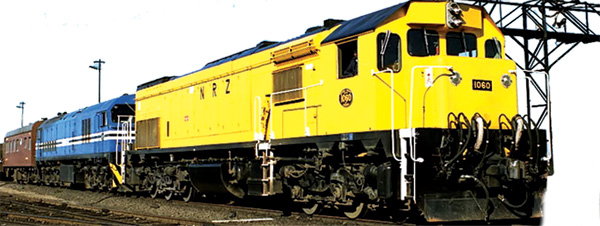
THE National Railways of Zimbabwe (NRZ), the employer of choice during the pre and post–independence era, has plummeted to being one of the worst, battling with low capitalisation and a bloated workforce compounded by dilatory management supervision.
OWN CORRESPONDENT
Despite the decrease in the NRZ workforce in the past decade to a current head count of slightly above 7 000 from 9 000 during peak production, the parastatal is battling to pay its employees with salary arrears of eight months estimated at $46 million, as the entity continues struggling to stay afloat.
At its peak in 1998, NRZ used to ferry goods in excess of 18 million tonnes which, however, went down to 3,7 million tonnes in 2011.
This year the battling parastatal is projecting ferrying six million tonnes of cargo, but might miss the target as industrial and agriculture production, which are key sectors expected to sustain the entity, continue singing blues due to the present harsh economic climate.
- Chamisa under fire over US$120K donation
- Mavhunga puts DeMbare into Chibuku quarterfinals
- Pension funds bet on Cabora Bassa oilfields
- Councils defy govt fire tender directive
Keep Reading
NRZ public relations manager Fanuel Masikati, although not confirming that they would miss this year’s target of ferrying six million tonnes, told Southern Eye Business that the board would be sitting soon to look into this year’s projection considering that the economy significantly weakened in the first half of the year.
“The board will be sitting soon to look at our projections for this year,” Masikati said. “I cannot at the moment give official figures on what we are expecting to ferry.”
The state railway firm currently has about 65 locomotives, 3 271 wagons, nine cabooses and 158 coaches against the optimum average requirement of 83 locomotives, 4 262 wagons, 17 cabooses and 145 coaches required to run the company viably.
When Southern Eye visited NRZ premises, it could easily be mistaken for a junkyard. The once thriving massive railway station is surrounded by rusty, smelly and run-down coaches and wagons that are scattered all over the place – a confirmation that the parastatal is in the doldrums.
Albert Mhlanga, MDC-T legislator for Pumula and a former member of the Parliamentary Portfolio Committee on Transport, said the decimation of NRZ was largely due to mismanagement.
Mhlanga said the parastatal management was taken over by the army and because of its links to Zanu PF, it had been abused in achieving the party’s interests.
He added that the de-industrialisation of the country and a downturn in agriculture had also contributed to the decline of the entity. Industry – especially in Bulawayo, which used to be the NRZ’s main clients – is now on its knees, with last year recording 84 company closures.
Another 64 companies are reportedly on a verge of collapse.
Mhlanga called for the reshuffling of the NRZ management, saying it was the only way the entity could recover. He also pinned this to the anticipated recovery of industry in Bulawayo in the post-2013 election period.
The cash-strapped parastatal requires at least $400 million in the short term to improve operations and replace its archaic infrastructure, including rail tracks, telecommunication signals and wagons, which have outlived their lifespan. In the long term, NRZ needs $2 billion to fully recover.
The company has implemented multifaceted measures in a bid to raise capital to finance operations. NRZ recently announced that it was moving out of rented premises as part of space rationalising and cost-cutting.
In the same period, property managers Knight Frank announced that it was looking for tenants to take occupancy of the building.
Also as part of efforts to recapitalise, NRZ in 2009, ordered 16 locomotives worth $30 million from a Chinese company, but four years down the line, it is yet to take delivery of the equipment due to failure by the government to pay a balance of $27 million.
NRZ had paid an initial $3 million upon placement of the order which is yet to be delivered. The organisation has for long been in talks with private investors to raise funds to recapitalise which, however, have not yet yielded positive results.
Twitter feedback @mudarikirig










